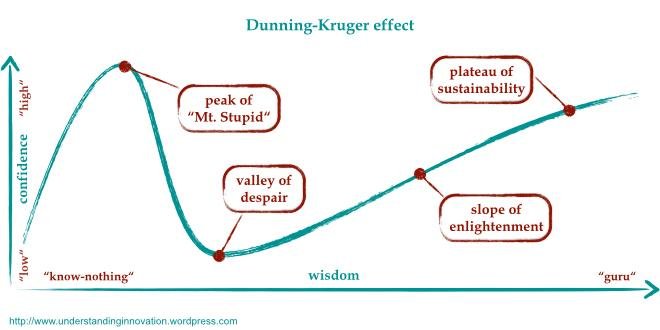How three cognitive biases harm your decision making (and what to do to avoid them)
1) The Narrative Fallacy
Professor Nassim Taleb describes this cognitive bias as “our limited ability to look at sequences of facts without weaving an explanation into them”.
Humans are wired to make sense of the world and have done so for millennia through storytelling. However, not everything that appears to be causally linked is.
👉 To avoid this fallacy, make sure you base significant decisions on hard data. If you don’t have good data, be mindful that you may assign meaning when there is none.
2) Confirmation Bias
Wikipedia defines it as “the tendency to search for, interpret, favor, and recall information in a way that confirms one’s preexisting hypothesis.”
Studies have shown that this effect is widespread - people are hesitant to change their long-held beliefs. If there is contradicting evidence people tend to ignore it or find a farfetched reason to question it’s legitimacy.
👉 To avoid this trap, before disagreeing to a proposal, pause and think if you have any longheld beliefs that may influence your decision.
If you do, try to reframe by imagining how someone who doesn’t have your views may go about making a decision.
3) Dunning-Kruger Effect
People are overconfident in their abilities when they are still relatively new to a field and underestimate their skills when approaching expert-level knowledge.
The below image describes it well (swipe right).
It leads to poor decisions at work because people who don’t yet fully understand a topic believe they do and rely more on intuition than they should.
Of course, decision-making based on intuition has a place in business (see the incredible book “Thinking Fast and Slow” by Nobel Laureate Daniel Kahneman).
But intuition is only practical once we have reached a high level of knowledge and skill.
👉 It’s difficult to catch this effect yourself. But what you can do is rely less on intuition in areas you are still relatively new to, even if you think you have already mastered it.
To summarize:
➣ Avoid the Narrative Fallacy by assigning meaning or correlation only if you have hard data in support of it
➣ Don’t fall prey to Confirmation Bias by pausing to be mindful of how long-held beliefs influence your decision making
➣ Rely less on intuition when you are new to something to side-step the Dunning-Kruger effect
If you’d like to learn more about FP&A, I offer help in three ways:
1️⃣ Subscribe to my free newsletter “FP&A Tuesday” here.
2️⃣ Listen to 75 bite-sized mini lessons and get FP&A advice on the go.
3️⃣ Join my live online course FP&A Bootcamp to master FP&A in two weeks.

